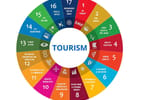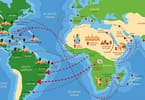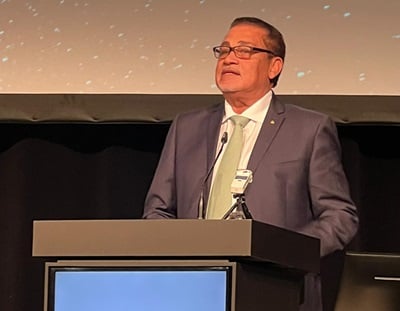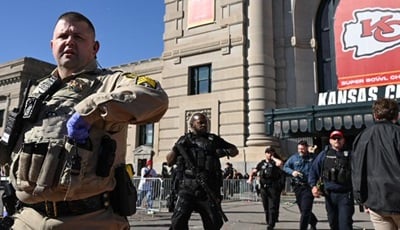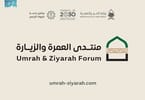- Danas The Hon. Gustav Segura Costa Sancho, minister of Tourism for Costa Rica had put his neck out in officially requesting a secret ballot vote for the reconfirmation of the UNWTO Secretary- General at the upcoming UNWTO General Assembly December 3, 2021
- This request will eliminate the confirmation of the SG by acclamation. This move is a first in the history of UNWTO, and a game changer.
- What would happen if the current Secretary-General Zurab Pololikashvili would not receive the required 2/3 votes to be confirmed for another term? The exact procedure is outlined in this article – and is easy!
In a surprise move today, The Hon. Gustav Segura Costa Sancho, minister of Tourism for Costa Rica moved him and his country into the driver seat of World Tourism.

On behalf of his government, he officially demanded a secret ballot vote to endorse the recommendation by the Executive Council to confirm UNWTO Secretary-General for another term. This vote will take place on December 3, 2021 at the upcoming UNWTO Generalna skupština u Madridu.
Many ministers had hoped for this move to happen, but no one had the courage of sticking their own neck out or to even be quoted.
In showing true leadership and a commitment to world tourism, The Hon. Gustav Segura Costa Sancho today did what many were hoping would happen, but no one wanted to initiate.
Considering the ongoing COVID-19 crisis makes it a challenge for many countries to send their tourism minister or delegate to Madrid, this brave move by Costa Rica will hopefully enspire others to follow suit.
Good participation is needed not only for a quorum, but to assure a fair and complete election by UNWTO members. Considering tourism is maneuvering through the most difficult crisis, good and strong leadership will benefit every country, its economies, jobs and policies.
It should be noted, that Costa Rica is asking, that the designation of the Secretary-General for the period 2022-2025 is to be done by secret ballot of all present and effective members as stated in the norms. This request will enforce koji regulišu taj odnos između država/UNWTO, the Costa Rica said in his letter to the UNWTO Secretariat on November 15.
UPOZORENJE: A Secret ballot does not mean “Electronic Ballot.”
eTurboNews received this warning today from an inner circle member and UNWTO insider with detailed knowledge. He told eTN..
The danger between a traditional paper ballot and an electronic vote!
The main argument by the Secretary- General is to make it easier for members to vote at the General Assembly using an electronic voting system.
Interestingly enough, the current Secretary-General is making the same proposal in Agenda item 16. This item suggest a change in the rules of procedure for the General Assembly (A/24/16).
The reasons why the current Secretary General might prefer this method is obvious:
Ballots and tellers cannot be manipulated as the process is auditable from A to Z.
An electronic vote cannot be audited.
Electronic votes may easily be manipulated by the Secretariat, as they control the gears of the e-voting system. Such a vote may also not ensure the confidentiality of the vote. It may put pressure on those countries that may have given oral reassurances, but wanted to take a different path.
What exactly will happen if Secretary General Zurab Pololikashvili was not confirmed on December 3?
raspored
Procedure and calendar for the election of the Secretary-General of the Organization for the period 2022-2025
- Decembar 3, 2021: Approval of the election procedure and timetable at the 115th session of the Executive Council in Madrid, Spain.
- Decembar 2021: Oglas za radno mjesto biće objavljen na UNWTO web stranicu i verbalnu notu poslati svim članovima u kojoj se navodi krajnji rok za prijem prijava.
- 11 Mart 2022 (date to be confirmed): Deadline for receipt of applications, i.e., two months before the inauguration of the 116th session of the Executive Council in Madrid, Spain, on 11 May 2022 (date to be confirmed).
- Upon the official opening of the candidatures, the candidates are informed about the validity of their candidature.
- 11 April 2022 (date to be confirmed): Note verbale to be issued announcing the received candidatures (deadline for dissemination of candidatures is 30 calendar days before the inauguration of the 116th Executive Council session).
- 11-12 Svibanj 2022 (dates to be confirmed): Selection of the nominee by the Executive Council at its 116th session to be held in Madrid, Spain, the headquarters city of the Organization.
- 13 Maj 2022: Election of the Secretary-General for the period 2022-2025 at the extraordinary session of the General Assembly to be held in Madrid, Spain.

Rules, Procedures and Smallprint:
The General Assembly:
Election Process of the UNWTO Secretary-General:
The election of the UNWTO Secretary-General has two phases:
- An election process in the Executive Committee where, upon receiving the candidates, the Executive Council votes to RECOMMEND to the General Assembly a candidate.
- The recommended candidate is ratified (or not) by the General Assembly.
Članak 22 UNWTO Statutes very clearly establish that the Secretary-General election must be taken by two-thirds of the effective and present members:
At the same time, Article 38, subparagraph 2, dash e) of the Rules of the General Assembly, states that the election of the Secretary-General shall be taken by a majority of two-thirds of the present and effective members.
Later, article 43 of the Rules of the General Assembly clearly states that the election must be done by tajno glasanje.
It has been the custom to elect the Secretary-General by acclamation, but this is not established in the current rules, it is a custom.
If only one Member State asks for the election to be done by secret vote, that is enough to abandon the acclamation custom and go ahead with the secret voting by all present and effective members.
To be elected or reelected, the candidate proposed by the Executive Council, must reach 2/3 of all present and effective voting members.
In case that there is no reelection of the Secretary-General, then the General Assembly shall take an agreement in agenda point 9 of the Election of the Secretary-General, where it instructs the Executive Council to open a new process for the designation of the UNWTO Generalni sekretar.
Procedure and calendar for the election of the Secretary-General of the Organization for the period 2022-2025
pozadina
- Article 22 of the Statutes of the UNWTO glasi:
“The Secretary-General shall be appointed by a two-thirds majority of Full Members present and voting in the Assembly, on the recommendation of the Council, for a term of four years. His appointment shall be renewable.”
- The term of office of the current Secretary-General expires on 31 December 2021. It is therefore incumbent on the General Assembly to appoint a Secretary-General for the period 2022-2025 at an extraordinary session due to be held in place and date to be determined in 2022.
- Consequently, in accordance with Article 22 of the Statutes and with Rule 29 of the Rules of Procedure of the Executive Council, the Executive Council will be required at its 116th session (11-12 May 2022 (dates to be confirmed)) to recommend a nominee to the General Assembly. This document provides the procedure and timetable for such election.
- For purposes of this nomination, it is proposed that the established practice be followed and, more particularly, that the rules adopted by the Council for the selection of a nominee for the post of Secretary-General at its twenty-third session in May 1984 (decision 17(XXIII)), supplemented by those adopted at its thirty-fourth session in November 1988 (decision 19(XXXIV)), and at its forty-fourth session in November 1992 (decision 19(XLIV)) se posmatraju.
- The above-mentioned rules, which have been consistently applied for the nomination for the post of Secretary-General since 1992, provide that:
“(a) only nationals of States Members of WTO may be candidates;
“(b) candidates shall be formally proposed to the Council, through the Secretariat, by the governments of the States of which they are nationals, and these proposals should be received no later than (date to be determined[1]), the postmark providing proof thereof;
“(c) voting shall be conducted by secret ballot in accordance with the Guiding Principles for the Conduct of Elections by Secret Ballot attached to the Rules of Procedure of the General Assembly;
“(d) the vote shall be decided in accordance with Article 30 of the Statutes and Rule 28 of the Council’s Rules of Procedure, by simple majority, defined as fifty percent plus one of the valid ballots cast;
“(e) the selection of one nominee by the Council shall be conducted, in accordance with Rule 29 of the Council’s Rules of Procedure, during a private meeting, part of which shall be a restrictive meeting, as follows:
“(i) discussion of candidates shall be conducted during a restrictive private meeting at which only voting delegations and interpreters shall be present; there shall be no written record and no tape recording of the discussions;
“(ii) during the balloting Secretariat staff necessary to assist with the voting shall be admitted;
“(f) the Executive Council decides not to recommend a candidate proposed by the government of a member State in unjustified arrears (paragraph 12 of the Financing Rules attached to the Statutes);
“(g) the Council shall select only one nominee to recommend to the Assembly.”
- In addition, the procedure established for the receipt of nominations that has been applied since 1992 provides the following with respect to the presentation of the nominations:
"Svaki nomination should be accompanied by a curriculum vitae and a statement of policy and management intent, expressing the nominee’s views on the manner in which he or she would perform the functions of Secretary-General. These particulars will be compiled in the form of a Council document and communicated to its Members within the prescribed time limits.
“In the interest of maintaining equality between the nominees and to ensure that their documents are readable, it is suggested that curricula vitae be confined to, say, two pages and statements of policy and management intent to six pages. The nominations will be presented in alphabetic order in the Council document.”
- Since 1992, the time-limit set for the receipt of candidatures (to which the corresponding government supports, curricula vitae and statements of intent must be actually attached) has been established at two months before the session at which the Executive Council is required to select a nominee. The Secretariat consequently informs all the Members by note verbale of the receipt of each nomination.
- Since 1997, the nominees for election to the post of Secretary-General have made an oral presentation of their candidature and intentions during the Council’s nominating session. Called in the Spanish alphabetical order of their surnames, the nominees are allotted equal time for making their presentations which are not followed by discussions.
- In accordance with Rule 29(3) of the Rules of Procedure of the Executive Council, the recommendation to the Assembly of a nominee for appointment to the post of Secretary-General: “shall be made by a simple majority of the Members of the Council present and voting2. If no candidate receives the majority in the first ballot, a second and, if necessary subsequent ballots shall be held to decide between the two candidates receiving the largest number of votes.”
- In accordance with the constant practice of the Organization, recalled in decision 17(XXIII) of 1984, a simple majority is “defined as 50 per cent plus one of the valid ballots cast”. This rule was confirmed in 1988 and 1992 (decisions 19(XXXIV) and 19(XLIV)). In the event of an odd number, it seems in conformity with logic, with the ordinary meaning of words and with the dominant practice, to define it rather as representing the number of votes immediately higher than half of the votes validly cast3.
- As for the procedures of the “second” and “subsequent ballot” mentioned in Rule 29(3), should they prove necessary, the clarifications provided by the Legal Adviser in the Information Document for the Election of the Secretary-General in 1989 and confirmed in 2008 (16(LXXXIV)) would apply in the event that two candidates should share the second place in the first ballot. The consequence would be that another ballot (and as many additional as necessary for achieving the required majority) would be organized between the three candidates to decide which two candidates, having received the greatest number of votes, will subsequently participate in the final ballot.
- Representation of a State by another Full Member of the Organization during the election of the nominee will follow the resolutions adopted by the General Assembly at its 19th session in the Republic of Korea in 2011 (resolution 591(XIX)), at its 20th session in Zambia/Zimbabwe in 2013 (resolution 633(XX)) and at its 21st session in Colombia in 2015 (resolution 649(XXI)).
- It is recalled that Members to which Article 34 of the Statutes and paragraph 13 of the Financing Rules attached to the Statutes are being applied at the time of the election are deprived of membership privileges in the form of services and the right to vote in the Assembly and the Council unless they have been granted a temporary exemption from the application of such provisions by the Assembly.
- The procedure stated in this document has been put into practice successfully, and without giving rise to any particular difficulty, for the appointments carried out since 1992.
- In line with the recommendations by the Joint Inspection Unit of the United Nations (JIU) relating to the selection and conditions of service of Executive Heads in the United Nations System Organizations (JIU/REP/2009/8), each applicant is requested to attach a certificate of good health signed by a recognized medical facility to the presentation of her/his candidature as described in paragraph 6.
- As provided under Rule 27(2), the term “Members present and voting” shall be understood to mean “Members present and voting for or against”. Therefore, abstentions and blank votes shall be regarded as not voting.
Actions to be taken by the Executive Council
The Executive Council is invited:
- To decide that the rules adopted by the Council for the selection of a nominee for the post of Secretary-General at its twenty-third session in May 1984 (decision 17(XXIII)), supplemented by those adopted at its thirty-fourth session in November 1988 (decision 19(XXXIV)), and at its fortyfourth session in November 1992 (decision 19(XLIV)) shall also be observed at its 105th session;
- To confirm that, for the interpretation of the statutory rules governing the election of the Secretary-General and the decisions mentioned in subparagraph (a) above, reference shall be made to the contents of this document;
- To invite the Member States to propose candidates for the post of Secretary-General for the period 2022-2025, ensuring that their nominations reach the Organization’s Headquarters (Capitán Haya 42, 28020 Madrid, Spain) two months before the inauguration of the 116th session of the Executive Council, i.e., by 24:00 hours Madrid time, 11 March 2022 (date to be confirmed), at the latest;
- To request candidates to submit, together with biographical and career information, a statement of policy and management intent, expressing their views on the manner in which they would perform the functions of Secretary-General; and
- To confirm that the 116th session of the Executive Council will select the nominee it should recommend to the extraordinary session of the General Assembly for the post of Secretary General of the Organization for the period 2022-2025.
ŠTA UZIMATI IZ OVOG ČLANKA:
- Gustav Segura Costa Sancho, minister of Tourism for Costa Rica had put his neck out in officially requesting a secret ballot vote for the reconfirmation of the UNWTO Secretary- General at the upcoming UNWTO General Assembly December 3, 2021This request will eliminate the confirmation of the SG by acclamation.
- Instructs the President of the Executive Council and the Secretary General of the organization to convene the 116th Executive Council and an extraordinary General Assembly, in May 2022, at a place and date to be defined.
- It should be noted, that Costa Rica is asking, that the designation of the Secretary-General for the period 2022-2025 is to be done by secret ballot of all present and effective members as stated in the norms.






